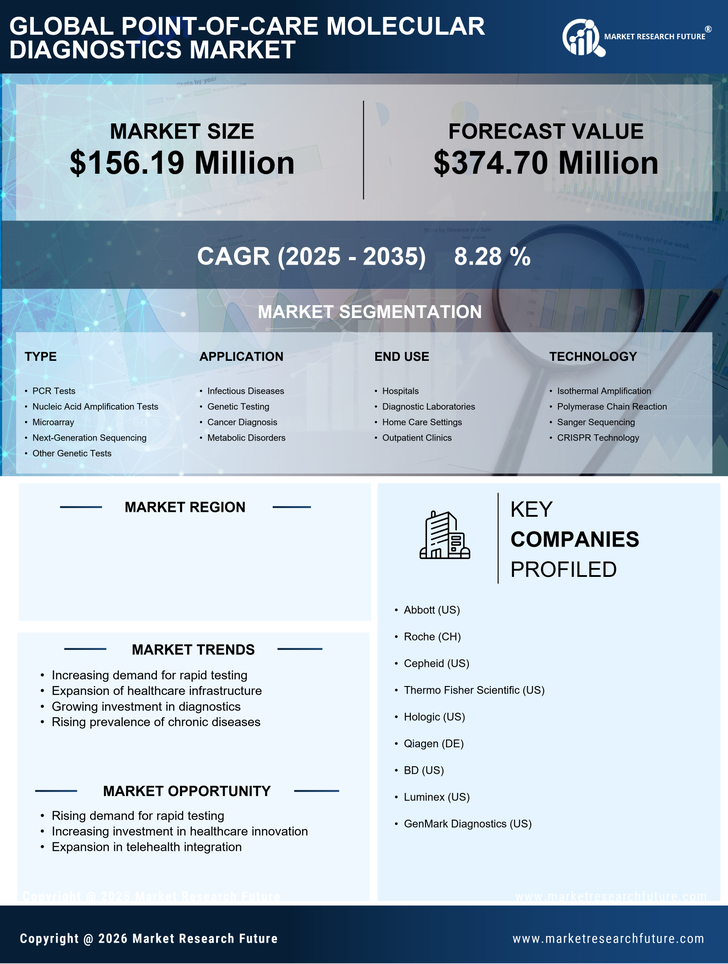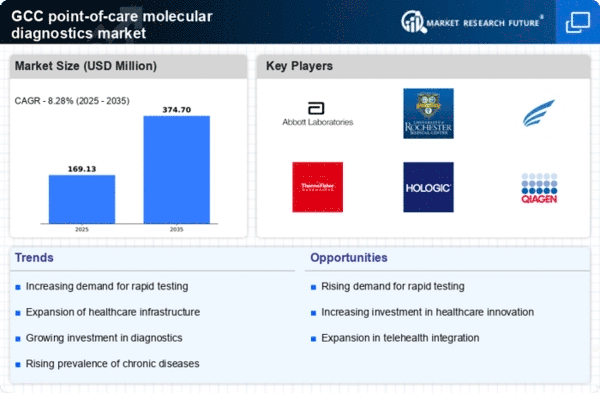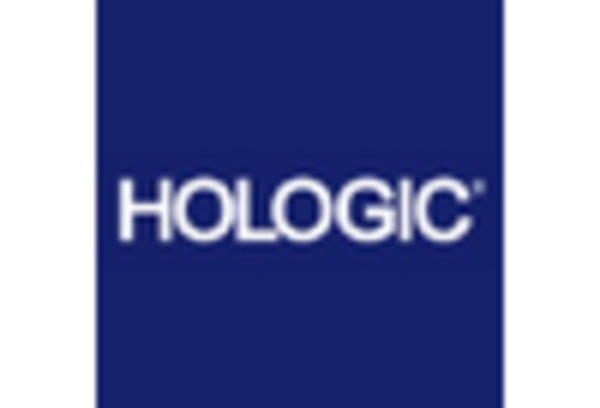Focus on Personalized Medicine
The point of-care-molecular-diagnostics market is increasingly aligned with the growing emphasis on personalized medicine. As healthcare providers seek to tailor treatments to individual patient profiles, the demand for molecular diagnostics that can provide specific genetic and biomarker information is rising. In the GCC, this trend is reflected in the increasing integration of molecular testing into routine clinical practice, enabling healthcare professionals to make informed decisions based on a patient's unique genetic makeup. The market is projected to grow as more healthcare institutions adopt personalized approaches to treatment, with an estimated increase in molecular diagnostic tests by 15% annually. This focus on personalized medicine not only enhances treatment efficacy but also underscores the importance of the point-of-care-molecular-diagnostics market in advancing healthcare innovation.
Increasing Healthcare Expenditure
The point of-care-molecular-diagnostics market is benefiting from the rising healthcare expenditure across the GCC region. Governments and private sectors are investing heavily in healthcare infrastructure, which includes the procurement of advanced diagnostic technologies. In 2025, healthcare spending in the GCC is anticipated to exceed $200 billion, with a significant portion allocated to diagnostic services. This increase in funding is likely to enhance the accessibility and availability of point-of-care testing, particularly in remote and underserved areas. Furthermore, as healthcare systems prioritize early detection and preventive measures, the demand for molecular diagnostics is expected to rise. This trend indicates a robust growth trajectory for the point-of-care-molecular-diagnostics market, as stakeholders recognize the value of investing in rapid and accurate diagnostic solutions.
Rising Demand for Rapid Diagnostics
The point of-care-molecular-diagnostics market is experiencing a notable surge in demand for rapid diagnostic solutions. This trend is driven by the increasing need for timely and accurate results in various healthcare settings, particularly in emergency and outpatient care. In the GCC region, healthcare providers are increasingly adopting point-of-care testing to enhance patient management and reduce the burden on centralized laboratories. The market is projected to grow at a CAGR of approximately 10% over the next five years, reflecting the urgency for quick diagnostic capabilities. This demand is further fueled by the rising prevalence of infectious diseases and chronic conditions, necessitating immediate diagnostic interventions. As healthcare systems strive for efficiency, the point-of-care-molecular-diagnostics market is poised to play a crucial role in transforming patient care and outcomes.
Shift Towards Decentralized Healthcare
The point of-care-molecular-diagnostics market is witnessing a paradigm shift towards decentralized healthcare models. This transformation is driven by the need for accessible and convenient healthcare services, particularly in the GCC region, where populations are often dispersed across urban and rural areas. Decentralized healthcare allows for testing to be conducted closer to the patient, reducing the need for travel to centralized laboratories. This shift is supported by advancements in telemedicine and mobile health technologies, which facilitate remote consultations and follow-ups. As a result, the point-of-care-molecular-diagnostics market is likely to expand, catering to the growing demand for home-based and community-based testing solutions. This trend not only enhances patient convenience but also aligns with the broader goals of improving healthcare delivery and outcomes.
Technological Innovations in Diagnostic Tools
Technological advancements are significantly shaping the point of-care-molecular-diagnostics market. Innovations such as microfluidics, lab-on-a-chip technologies, and portable diagnostic devices are enhancing the accuracy and speed of molecular testing. In the GCC, the integration of artificial intelligence and machine learning into diagnostic tools is also gaining traction, enabling more precise interpretations of results. These innovations not only improve the efficiency of testing but also expand the range of detectable pathogens and conditions. The market is expected to witness substantial growth, with investments in research and development projected to reach $500 million by 2026. As technology continues to evolve, the point-of-care-molecular-diagnostics market is likely to see an influx of novel solutions that cater to the diverse needs of healthcare providers and patients alike.

















